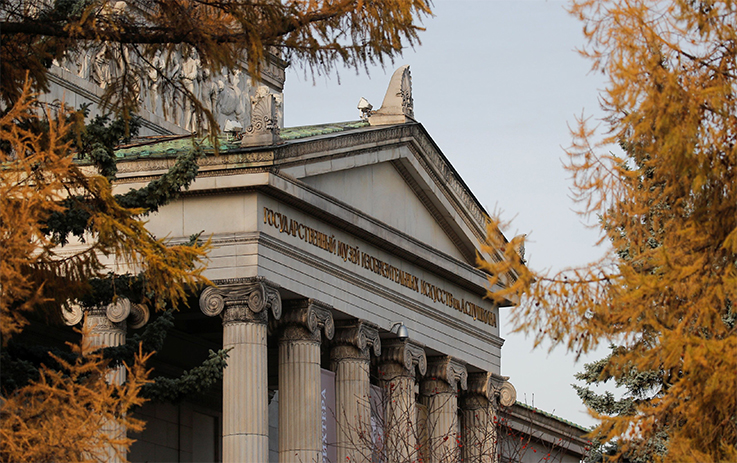Art is a reflection of culture, history, and identity, but what happens when this precious heritage is stolen? Poland, a nation with a rich cultural tapestry, has embarked on a quest for artistic justice. In the aftermath of World War II, countless treasures were looted by the Soviet Red Army, and now Poland is determined to reclaim its lost heritage from Russia. This article delves into Poland’s tireless efforts to restore its artistic treasures, the challenges it faces, and the significance of this pursuit for both Poland and the world.
Unearthing the Lost Treasures: A Historical Odyssey
Amidst the chaos of World War II, Poland’s cultural heritage fell victim to the ravages of war. Artifacts of immeasurable value, including paintings, manuscripts, and historical archives, were mercilessly plundered by occupying forces. The Soviet Red Army’s acquisition of these treasures, although born out of the tumultuous wartime context, has left an indelible mark on Poland’s identity.
- The Persistent Pursuit of Restitution
Poland’s journey towards reclaiming its looted treasures has been marked by resilience and determination. Piotr Glinski, the country’s Culture Minister, has championed the cause, appealing to Russia for the return of stolen artworks. While some nations have heeded Poland’s call, Russia’s response has been notably absent. - Challenges on the Path to Justice
Poland’s plea for artistic justice is not without its challenges. The diplomatic complexities surrounding the issue, coupled with strained historical relations, create a formidable obstacle. The recent tensions arising from Russia’s involvement in neighboring Ukraine further complicate the situation, casting a shadow on the prospects of reconciliation.
The Precious Artistic Legacy: A Nation’s Identity
Art serves as a bridge between the past and the present, reflecting the essence of a nation’s identity. The stolen artworks are more than mere objects; they are a testament to Poland’s cultural heritage and a reminder of its resilience in the face of adversity. The artworks hold stories of generations past, embodying the spirit of a nation that perseveres despite the odds.
- The Heartfelt Plea for Return
Poland’s plea for the return of its artistic treasures is a poignant call to preserve its history and safeguard its cultural legacy. The stolen artworks, scattered across various museums and collections, remain fragments of Poland’s narrative. Their return represents not only a victory for justice but also a step towards healing historical wounds.
A Global Implication: Beyond Borders
Poland’s quest for artistic justice transcends its national boundaries. The issue resonates with countries worldwide, highlighting the broader significance of restitution for cultural heritage. The efforts to reclaim looted treasures set a precedent for acknowledging the ethical responsibility to right historical wrongs, irrespective of geopolitical complexities.
- A Glimmer of Hope
Despite the challenges, there have been instances of success. Poland’s endeavors have resulted in the recovery of numerous looted cultural artifacts from various parts of the world. These triumphs demonstrate the potential for collaboration and the power of international cooperation in the pursuit of restoring stolen heritage.
A Journey of Redemption
Poland’s plea for artistic justice embodies the spirit of resilience and the unwavering commitment to preserve its cultural legacy. The quest to reclaim looted treasures from Russia is not solely a pursuit of artworks; it is a pursuit of redemption, a step towards acknowledging the wounds of history, and a testament to the enduring human spirit. As Poland continues to advocate for the return of its treasures, it beckons the world to stand united in the cause of artistic justice.
Frequently Asked Questions
- Why were Poland’s artworks looted during World War II? The looting of Poland’s artworks was a consequence of the chaos and upheaval caused by World War II, with various occupying forces seizing cultural treasures.
- Why is the return of these artworks significant for Poland? The return of looted artworks holds immense cultural and historical significance for Poland, as they are integral to the nation’s identity and heritage.
- How has Poland approached Russia for the return of the stolen treasures? Poland has persistently appealed to Russia for the return of its stolen artworks, although previous requests have not yielded positive responses.
- What challenges does Poland face in its quest for artistic justice? Diplomatic complexities, strained historical relations, and geopolitical tensions pose significant challenges to Poland’s pursuit of restitution.
- How does Poland’s quest for artistic justice impact the global stage? Poland’s efforts to reclaim looted treasures resonate globally, emphasizing the importance of acknowledging historical wrongs and preserving cultural heritage.






